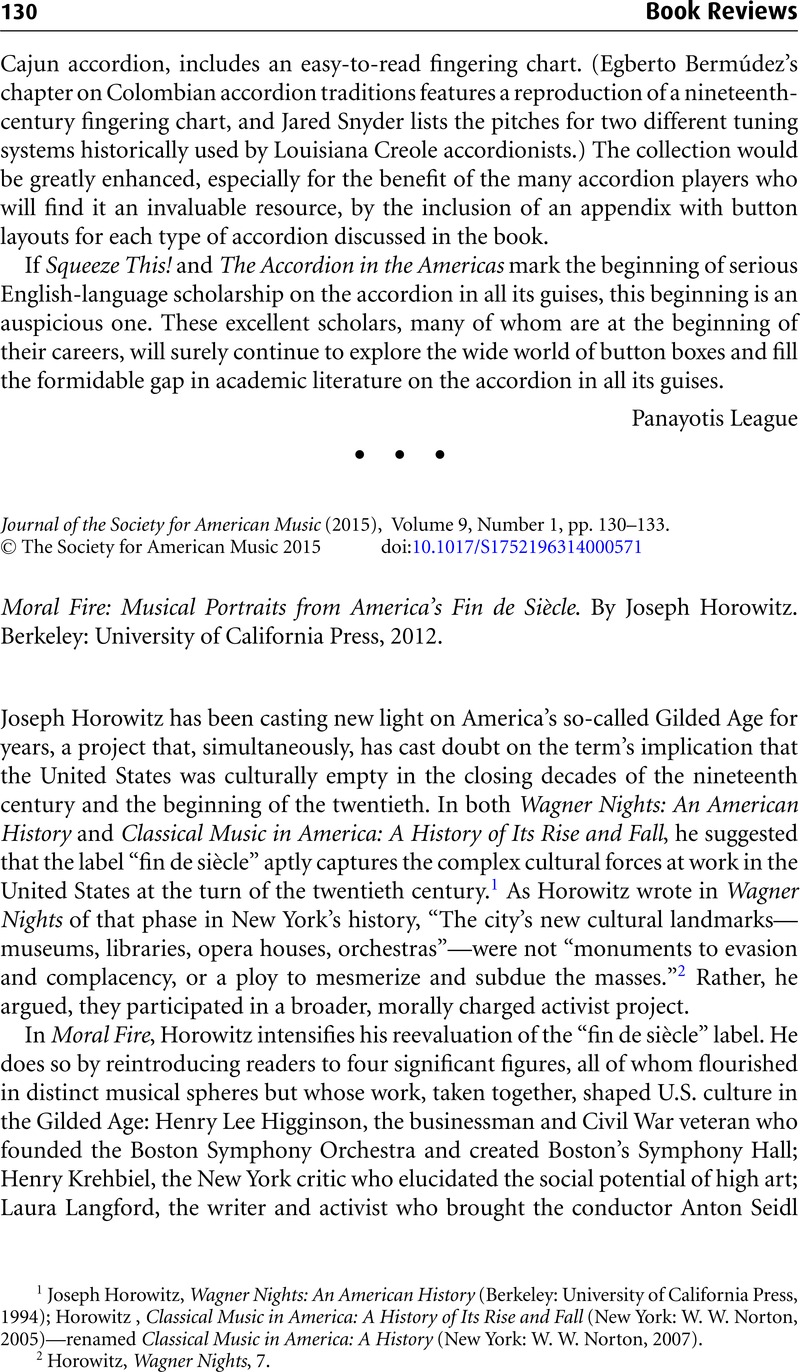No CrossRef data available.
Published online by Cambridge University Press: 04 February 2015

1 Horowitz, Joseph, Wagner Nights: An American History (Berkeley: University of California Press, 1994)Google Scholar; Horowitz, , Classical Music in America: A History of Its Rise and Fall (New York: W. W. Norton, 2005)Google Scholar—renamed Classical Music in America: A History (New York: W. W. Norton, 2007).
2 Horowitz, Wagner Nights, 7.
3 A precedent for Horowitz's approach to Ives is Crunden, Robert, Ministers of Reform: The Progressives’ Achievement in American Civilization, 1889–1920 (Urbana: University of Illinois Press, 1984), 116–33Google Scholar. Crunden's place in Ives historiography within the discipline of American Studies is illuminated in Paul, David C., Charles Ives in the Mirror: American Histories of an Iconic Composer (Urbana: University of Illinois Press, 2013), 121–26 and 140–43Google Scholar. For a refutation of Crunden's positioning of Ives as a progressive, see Broyles, Michael, “Charles Ives and the Democratic Tradition,” in Charles Ives and His World, ed. Burkholder, J. Peter (Princeton, NJ: Princeton University Press, 1996), 118–60Google Scholar.
4 The books Horowitz cites include Kazin, Michael, A Godly Hero: The Life of William Jennings Bryan (New York: Anchor Books, 2007)Google Scholar; Wineapple, Brenda, White Heat: The Friendship of Emily Dickinson and Thomas Wentworth Higginson (New York: Alfred A. Knopf, 2008)Google Scholar; and Dalton, Kathleen, Theodore Roosevelt: A Strenuous Life (New York: Alfred A. Knopf, 2002)Google Scholar.